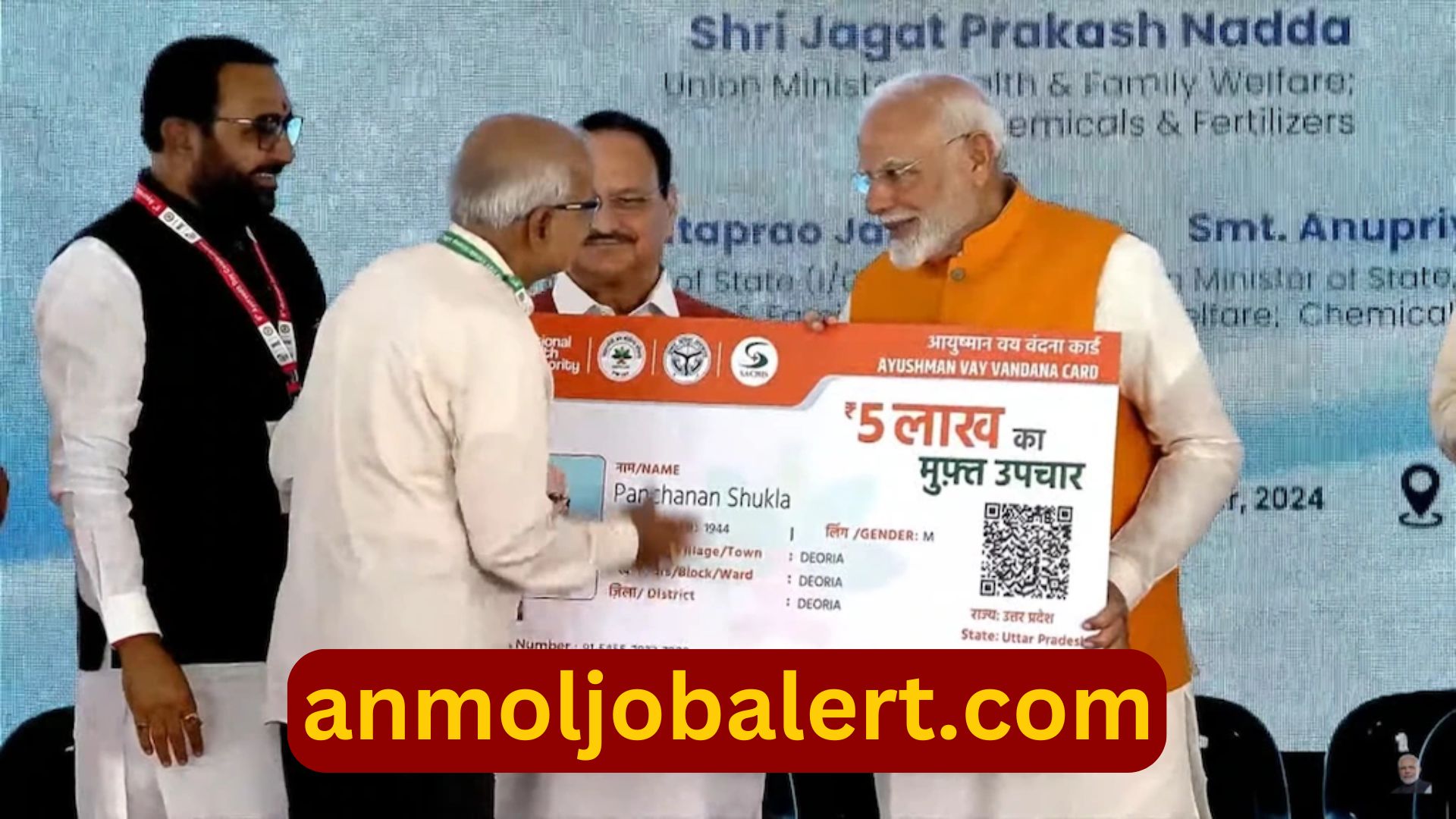The Ayushman Bharat Pradhan Mantri Jan Arogya Yojana (AB PM-JAY) is expanding to cover senior citizens aged 70 and above. Under this initiative, launched by PM Modi, senior citizens in this age group will receive health coverage regardless of their socioeconomic status, marking a shift toward universal healthcare for the elderly. Each eligible senior citizen will receive a new, distinct card, allowing them to access the scheme’s benefits, which include free treatment at empaneled hospitals for a wide range of medical conditions.
Ayushman Bharat : Reducing health costs
The Ayushman Bharat scheme aims to alleviate the financial burden of medical expenses, particularly for vulnerable populations. According to PM Modi, the government covers hospitalization costs up to ₹5 lakh per family each year for beneficiaries. This initiative is now expanded to include all elderly citizens above 70, who will receive free hospital treatment with the new Ayushman Vaya Vandana card.
This dedicated card for seniors helps to significantly reduce out-of-pocket expenses, sparing families the financial strain that can come with unexpected medical costs. By covering treatments across a wide network of hospitals, the expansion further strengthens healthcare accessibility and affordability for India’s senior citizens.
Ayushman Bharat : Ayurveda growth
On Dhanvantari Jayanti and the ninth Ayurveda Day, PM Modi launched health sector projects valued at approximately ₹12,850 crore, emphasizing India’s commitment to holistic healthcare. The celebration of Ayurveda Diwas, observed in over 150 countries this year, highlights the increasing global interest in Ayurveda, a traditional Indian medical system.
PM Modi outlined the five pillars of the government’s health policy:
- Preventive Healthcare
- Early Detection of Ailments
- Affordable and Free Treatment and Medications
- Increased Availability of Medical Professionals in Small Towns
- Enhanced Use of Technology in Healthcare
Among the key projects inaugurated were four centers of excellence under the Ayush Health scheme, the use of drone and helicopter services to expand healthcare access, and infrastructure upgrades at AIIMS facilities across India, including those in New Delhi, Bilaspur, and Rishikesh. This includes establishing new medical and nursing colleges and adding advanced medical infrastructure at five AIIMS. These initiatives reflect a significant investment in making quality healthcare accessible and affordable across India, with a special focus on integrating traditional and modern medical practices.

